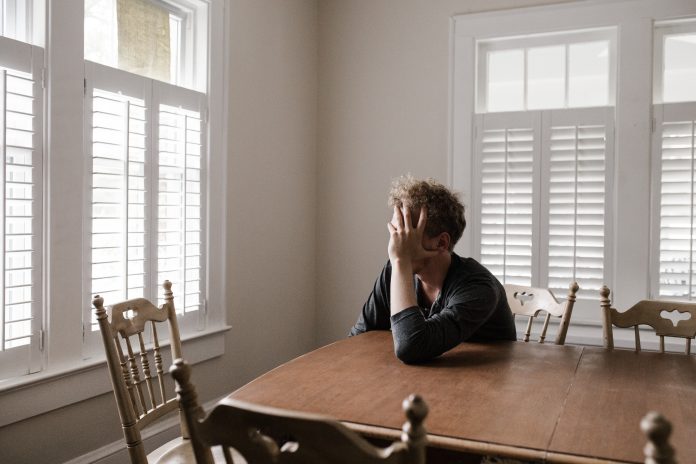Hanna Silva, clinical psychologist and therapeutic programme manager at Flow Neuroscience, explores the hidden struggle of depression for men and why they don’t get the treatment they need
Women are twice as likely to be diagnosed with depression than men, but men are significantly more likely to die by suicide and much less likely to seek professional help. Why is that? Let’s consider why significantly fewer men than women are diagnosed with depression. This is a question with a complex answer. Or rather, it entails more than one. Hormonal, environmental, psychological and sociological factors work together to create a gender difference.
Stigma
In general, men tend to experience stigma brought on by a social culture that celebrates self-reliance, toughness and repressing emotions. This sometimes prevents men from seeking professional help or makes them wait longer before doing so.
If you’re a man, you may have been taught to believe that you are ‘weak’ or ‘unmanly’ when asking for treatment. A misconception with deadly consequences.
A Canadian research study by Dr Mackenzie and colleagues found that depressed men reported significantly more self-stigma related to help-seeking than women, for example, “I would feel embarrassed about seeking professional help for depression”.
In addition, Mackenzie’s team looked for public stigma concerning men’s depression. They found that men, as a group, were more likely to stigmatise men’s depression and suicide by reporting things like “Men with depression could snap out of it if they wanted”.
Also, younger men were more likely to normalise or glorify suicide by reporting things like “Men who suicide are strong, brave, noble, or dedicated”. In contrast, women were more likely to report that men who suicide are isolated or depressed.
Masculine norms which typically glorify strength, taking care of your own problems and swallowing your emotions can stand in the way when you need a diagnosis and treatment.
The men-don’t-cry myth
It’s more common for men to think that it’s not okay for them to discuss difficult experiences such as abuse or neglect. Even though you know that talking is supposed to help, you have this voice vibrating through your brain saying that you should be able to ignore what happened to you. And if you don’t, you’re weak.
This could easily lead to projection. If you have been taught that feeling sad is a sign of weakness, it’s no wonder that it becomes very difficult to admit to yourself that you may have mental health problems. Instead of facing your inner world, you direct your attention and frustration outwards.
Different signs of depression in men
Another reason why men are less frequently diagnosed with depression is that it presents itself as slightly different in men than in women. In general, men are more likely to mask depressive symptoms through aggressive, risk-taking and impulsive behaviours (which are not actually listed as symptoms of depression). To understand the gender differences, let’s have a look at the similarities first.
There are nine common symptoms of depression that everyone experiences (men, women and non-binary). And you need to experience at least five of these to be diagnosed with depression:
- Depressed mood: Feeling blue most of the day, nearly every day.
- Loss of interest and pleasure: Markedly reduced interest/pleasure in all (or almost all) activities most of the day.
- Changed appetite or weight (eating more or less than usual).
- Sleep disturbance (too much or too little).
- Moving more slowly than usual or making meaningless movements due to anxiety (for example twisting your hands).
- Lacking energy: Feeling tired nearly every day.
- Feeling excessively guilty and/or worthless.
- Having difficulty concentrating and/or making decisions.
- Having repeated thoughts about death, suicidal thoughts, or sometimes wishing you were dead.
In addition to the common symptoms above, signs of depression in men can look like this:
- Exaggerated anger and aggressive behaviour.
- Chronic irritability.
- Risk-taking or impulsiveness.
- A tendency to overwork (as a way to cope with depression).
- Drinking too much or abusing other substances.
- Arrogance (as a way to mask insecurity).
Depression in men doesn’t always look like the nine common symptoms. There is a risk you’ll get the wrong diagnosis or that your health care provider will miss your depression. That’s why it’s important to be aware of how the signs of depression sometimes differ between sexes.
About violence
If you allow yourself to paint with broad brushstrokes, you will find that a difference between the signs of depression in men and in women is that men have a greater tendency to actively express their depression, for example by yelling or fighting. This is of course a generalization and individual differences should never be ignored. Still, the potential risk of violence is too important to overlook.
As you can see from the list of symptoms above, the signs of depression in men can, when untreated, become a danger to family and friends. Aggression doesn’t necessarily end in violence. But sometimes it does. And learning more about the relationship between aggression and depression in men can help protect both the depressed person and the people around him.
Hormonal differences
Biology plays a part in depression, though not necessarily the lead role. Hormones can, to some extent, explain why depression less frequently affects men. Women as a group suffer from several forms of depression, such as postpartum depression, premenstrual depression and menopausal depression. In addition, they are affected by all the forms of depression that afflict men.
The barriers
It seems as though we need to consider biological, environmental, psychological and sociological factors to understand why men are less frequently diagnosed with depression. Part of the reason is that fewer men than women get depressed. But when depression affects men, they are less likely to identify their symptoms as depression and less likely to seek professional help; there is reason to believe that not all depressed men are diagnosed.
The stigma surrounding men’s depression, telling us that chronic sadness and male attributes just don’t go together, can have deadly consequences – it keeps men from getting the treatment they need.
Men feel, men feel deeply. It is important we educate, raise awareness, listen openly and support seeking help to end the cycle of hidden depression.











